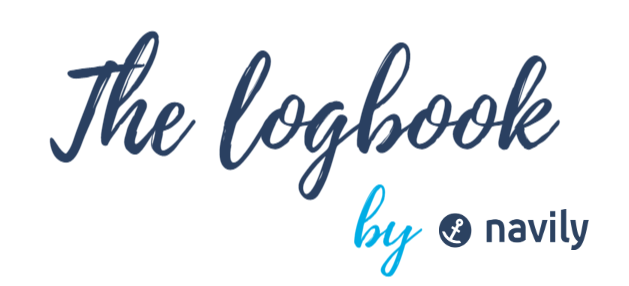
ProjAzzura is an ambitious initiative launched by a group of five students from Kedge Business School. Their project merges a passion for sailing with a strong commitment to environmental protection.
The objective of the project is to sail along the Corsican coast while cleaning beaches from the waste that clutters them. This approach, both sporty and eco-responsible, demonstrates that young people are ready to take meaningful action for a cleaner future.
ProjAzzura: An innovative, sporty, and eco-responsible project
Mission

Can you introduce yourselves and explain how the ProjAzzura project came about?
We are five students who met in September 2023 during our first year at Kedge Business School. The project originated from an idea by Olivier, who wanted to sail to Corsica with friends. Seeing the pollution on the beaches, we decided to give our adventure a greater purpose by combining our love for sailing with a concrete environmental action.
Who supported you in setting up this project?
We received support from our tutor at Kedge, as well as financial backing from two sponsors, Eutronix and Panoptes, both specializing in logistics tracking. Several associations, such as “1 Déchet Par Jour” and the Fondation de la Mer, along with small businesses like Moreati, also helped us along the way.
What was the biggest challenge in organizing this project?
The biggest challenge was securing funding. We spent two months reaching out to sponsors through emails and Instagram. It was an essential step to make the project happen.
What did you enjoy most and least about this project?
Marc: I really enjoyed the sailing training sessions. I also liked reaching out to people to present our project—it was fun calling people.
Olivier: The training throughout the year was a real pleasure. What I liked least was securing sponsorships, even though it was necessary.

Project Execution

Can you describe the project plan: the dates, itinerary, and your actions on-site?
We set sail on June 4th at around 11 a.m. and arrived in Calvi 24 hours later. Once there, we sailed to Saint-Florent to clean the bay, then continued towards Calvi, cleaning beaches along the way, eventually finishing between Calvi and Ajaccio. We covered a large part of Corsica’s west coast.
How did the crossing go, and how were you welcomed in Corsica?
The crossing was incredible, just as we had hoped. We saw a beautiful sunset in the middle of the sea, accompanied by about twenty dolphins. The next day, we were greeted by a sunrise over the Corsican mountains. We arrived at the Calvi marina at 11 a.m.
Once in Corsica, the staff at the marina helped us dock, but since we hadn’t done any prior promotion, our arrival remained discreet.
What was the biggest challenge while sailing along the coast? What tools did you use for navigation?
The main challenge was avoiding underwater rocks, as our sailboat had a rather deep keel. We had to stay alert to avoid any accidents.
We used several apps to plan our routes based on wind and weather conditions (Windy, PredictWind, Winguru) and Navionics to set our routes. We also used the Navily app to find the best anchorages. Additionally, we regularly tracked our position using a paper map.

How did the cleanups go? Did anyone help you on-site?
Every day, we anchored our boat near the beaches we planned to clean. We reached the shore using a dinghy, armed with gloves and garbage bags. Three of us stayed on the dinghy, one was on a paddleboard, and another swam to access hard-to-reach areas. Once the bags were full, we transported them back to the boat and stored them in the external holds before disposing of them in containers at the marina.
While we received plenty of encouragement and acknowlegment, no one helped us collect the waste.
Did you experience a gap between your expectations and reality on the ground? Do you think you achieved your goals?
Despite our research, we didn’t expect to collect so much waste. It confirmed that our action was really necessary.
Unfortunately, a five-day storm in Calvi prevented us from reaching our goal of collecting 10,000 liters of waste. Still, we managed to collect around 7,500 liters, which is a good result.
How did you handle the waste? Was anything recyclable?
We disposed of the waste in containers at the marinas where we spent the night.
Regarding recycling, we tried to get assistance from Corsican town halls, but their responses were delayed. It’s something we need to improve for next year.
Post-Project Reflection

What’s next for ProjAzzura?
What lessons have you learned from this experience? What advice would you give to those wanting to start a similar project?
Quelles leçons tirez-vous de cette expérience ? Quels conseils donneriez-vous à ceux qui souhaitent se lancer dans un projet similaire ?
We’ve learned a lot about organization, planning, and project management. This adventure also helped us strengthen our interpersonal skills, especially in dealing with sponsors and associations.
Don’t hesitate, just go for it! The hardest part is taking the first step. Gather your friends, dream together, and make your projects happen.
How can people support you now?
By spreading the word about our project and donating to our fund to support the next teams.
A message to the Navily community?
Thank you to all the Navily sailors for your support. Thanks to you, we can continue to preserve Corsica’s beaches so that everyone, sailors and vacationers alike, can enjoy this beautiful environment.
Salty kisses,
The ProjAzzura Team

That concludes our article on ProjAzzura! To support this honorable project and ensure its longevity, The Octopus invites you to check out their online donation fund!





